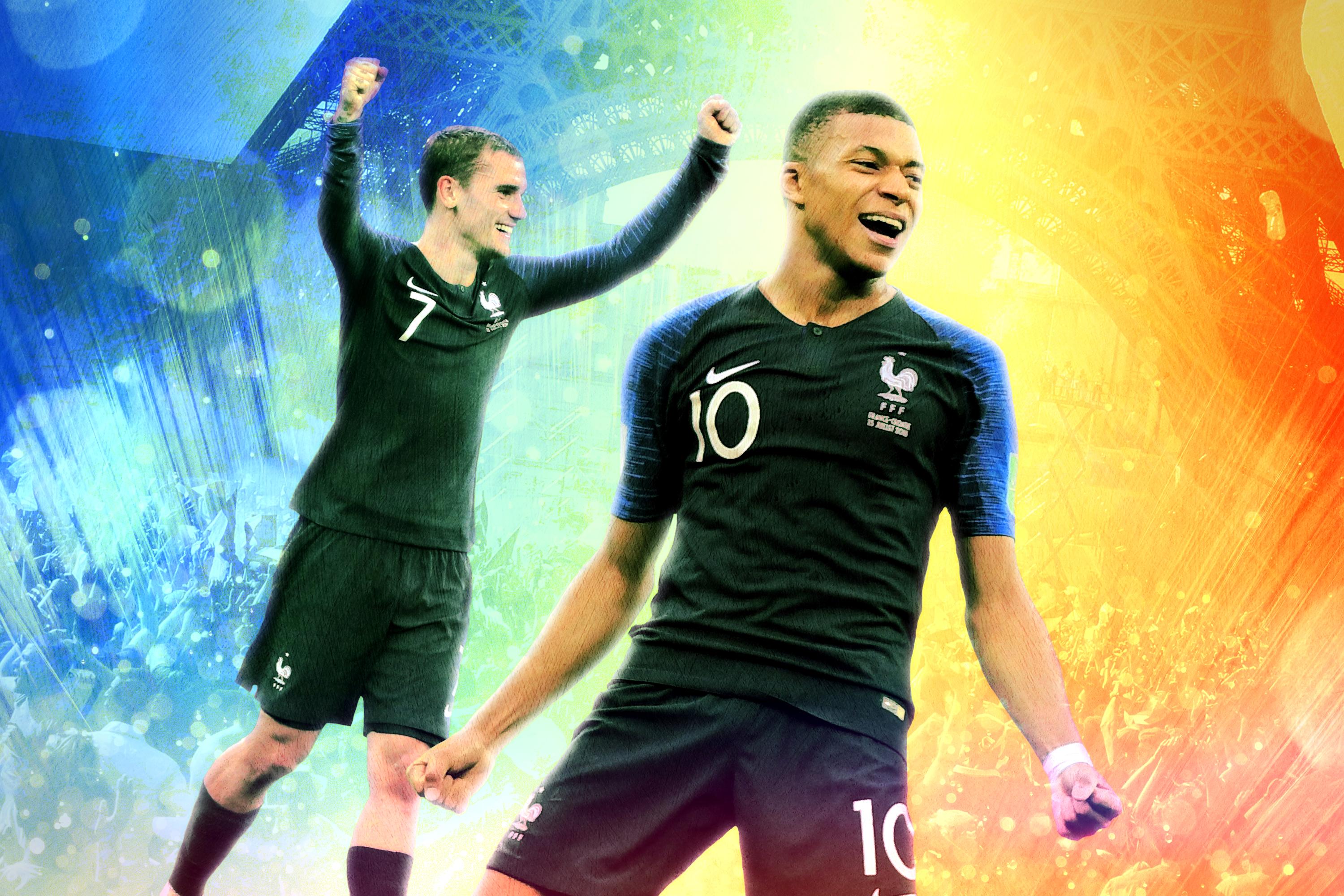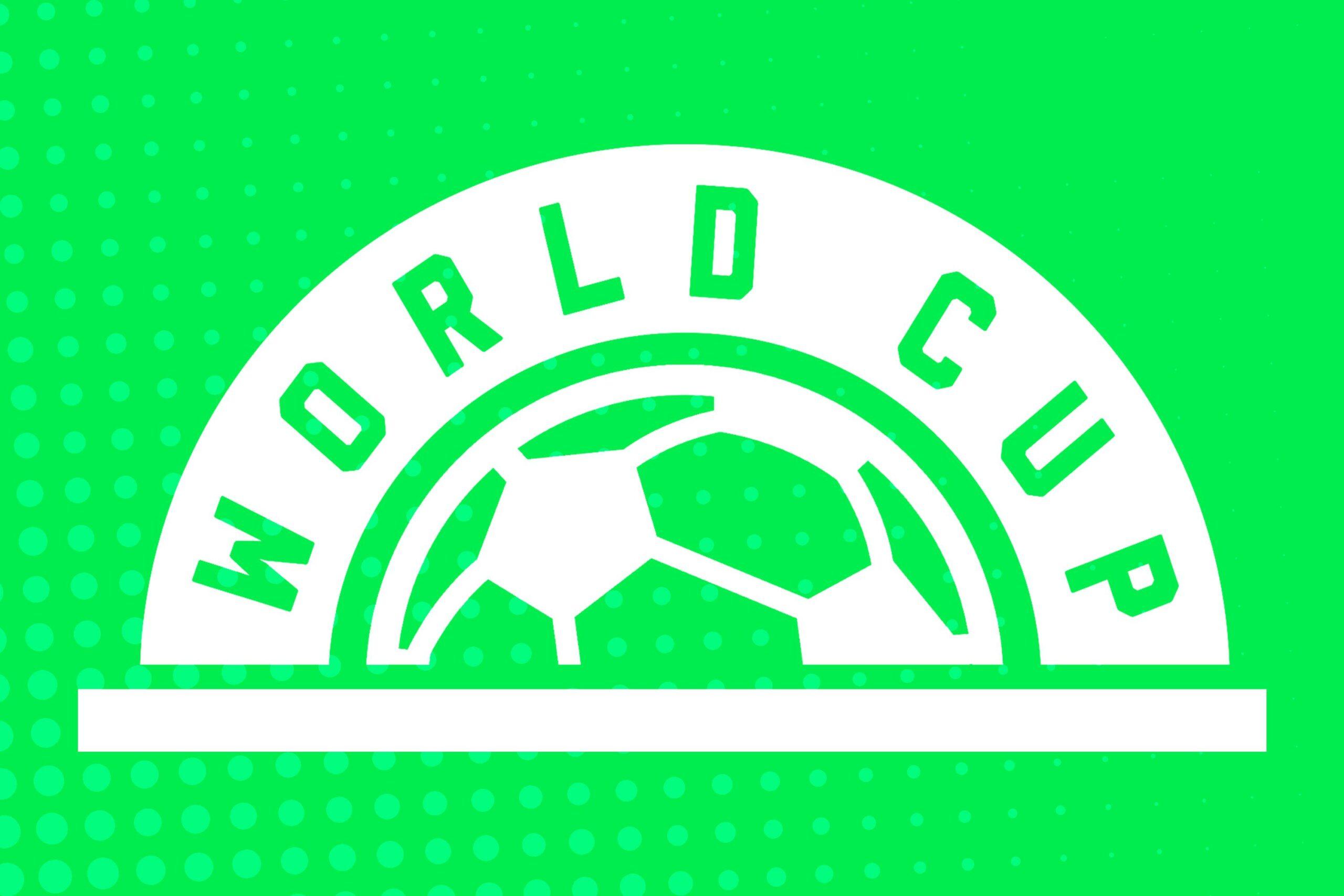
When the final whistle blew at Luzhniki Stadium, the scoreboard confirmed the inevitable. For the second time in 20 years, France are world champions.
This was France’s World Cup. From start to finish, they looked the most dominant of any pretournament favorites. After allowing just one goal in an undefeated run through the group stage, Les Bleus dominated the knockout rounds, putting four goals past Argentina in the round of 16, shutting out Uruguay in a 2-0 victory in the quarterfinals, and besting Belgium 1-0 in the semis. A win over Croatia in the final wasn’t a surprise, not like the French win over Brazil in 1998 was or the victory over Italy in 2006 would have been. Only Belgium scored more goals per 90 minutes, and no team had as many players with at least four goals. This was a coronation. And still, for much of the early period of the match, it seemed like Croatia might pull off an upset.
France didn’t take a single shot from open play in the opening half. Les Bleus spent the opening third on their back heels, and opened scoring before either team had taken a shot when a deflection off Mario Mandzukic’s head on an early French free kick gave them a 1-0 lead. A rocket off Ivan Pericic’s boot on the end of a broken set piece leveled the game, but the Croatian winger would soon find himself embroiled in controversy when a possibly accidental handball in the box 20 minutes later gave France a penalty after a lengthy VAR check. Antoine Griezmann cooly walked up to the ball and slotted it past Danijel Subasic to give Les Bleus a 2-1 advantage. It marked the beginning of the end for Croatia.
Twenty-one minutes after Griezmann gave France the lead, Paul Pogba put the game away. The Manchester United midfielder collected a pass from Griezmann just outside the box and ripped a one-timer that ricocheted off a Croatian defender, back to his boot, where he met it once more and launched it past Subasic to put France ahead, 3-1. Before the Croatian netminder knew what had happened, the ball was in the back of the net.
Six minutes later, the tournament’s Best Young Player winner, Kylian Mbappé, added to the lead when he took a pass from 25 yards, had a touch to find an angle, and calmly slotted it past the diving keeper. And though Croatia would later pull one back on a Hugo Lloris blunder, it didn’t matter. No Frenchman, not even the one most expected to maintain decorum, could keep from celebrating.
Even with the loss, this was not a failure for Croatia’s manager Zlatko Dalic or his roster. Croatia’s golden generation carried them to heights never before achieved. In 1998, the men in checkers fell to France in the semifinal. It was Croatia’s first trip to the World Cup, and the run was as successful as any their Yugoslavian predecessors had ever experienced. They would qualify for three of the next four tournaments, never able to replicate their forerunners’ success, falling in the group stage each time.
This summer’s iteration broke that streak. And while the core of this Croatian team, led by Golden Ball winner Luka Modric and his midfield partner Ivan Rakitic, likely won’t see this sort of international success again, their campaign serves as an inspiration to dark horses everywhere. Twenty years after they announced their arrival on the world’s biggest stage, a country of just over four million people stood 90 minutes from winning it all. Only eight countries have ever won a World Cup. That didn’t change this summer. But Croatia proved to the world that it could.
As for the champs, their victory could be just the beginning of a trophy-snatching run. When Les Bleus won 20 years ago, it marked the arrival of a dynasty of sorts. Many of their key players were in their early careers. Zinedine Zidane was 25, Lilian Thuram was 26, Patrick Vieira was 21, and Thierry Henry and David Trezeguet were 20. Two years later, they ran through the European Championships. And while those same players were responsible for France’s failures at the 2002 World Cup, it was that spine that brought them back to the world final in 2006.
France’s victory on Sunday could start them down the same kind of path. The nucleus of this French team is the same one that carried them to the final of the 2016 Euros. Of their key contributors this summer, only Lloris, Blaise Matuidi, and Olivier Giroud—who took 13 shots in the tournament, all off-target—are older than 30, and only Griezmann and N’Golo Kanté are 27. The rest of the squad are 25 or younger and will still be in their prime at the 2020 Euros and the 2022 World Cup (as will other players who either didn’t make this team, like Anthony Martial and Kingsley Coman, or those that didn’t feature heavily like Ousmane Dembélé).
For much of the summer, Mbappé looked like the most dynamic player on the planet. He scored the winner in a 1-0 group stage victory over Peru, added two more in the round of 16 against Argentina, and earned a penalty for his teammates for good measure. No footballer—not Lionel Messi, or Cristiano Ronaldo, or Neymar, his teammate at PSG—struck as much fear into fullbacks’ hearts in Russia as the diminutive 19-year-old. Before the World Cup, his eventual ascension to the title of world’s best player felt debatable. Now, it’s an inevitability. The future is bright for Les Bleus. Only three nations—Brazil, Germany, and Italy—have won the trophy more than twice. With the right luck, France is in position to join them.
